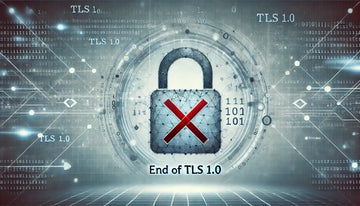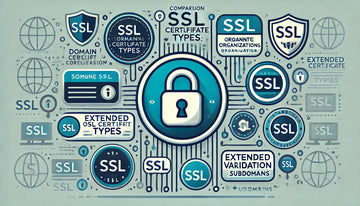E-commerce has experienced exponential growth in recent decades, giving consumers the convenience of buying online from the comfort of their homes. However, this growth has also led to an increase in cyber threats, especially in terms of customer data security. To address these concerns and ensure customer confidence, the use of SSL (Secure Sockets Layer) has become an essential practice in e-commerce. In this article, we will examine in detail how SSL contributes to the security of customer data in online stores and why it is essential for the success of e-commerce.
The Importance of Data Security in Electronic Commerce
E-commerce is based on customer confidence. Consumers should feel safe when providing personal and financial information online. The loss of customer data due to a security breach can have devastating consequences, ranging from loss of customer confidence to legal sanctions. This is where SSL comes into play.
What is SSL and How Does It Work?
SSL is a security protocol that is used to ensure the security of communication between the client's browser and the online store server. Works as follows:
- Data Encryption: When a customer makes an online purchase or enters personal information, SSL encrypts the data before it is transmitted over the Internet. This means that even if an attacker intercepts communication, he will not be able to read or use the data.
- Server Authentication: SSL verifies the identity of the online store server, ensuring that the client is connecting to the legitimate website and not to a malicious replica. This prevents attacks from identity impersonation.
- Data Integrity: SSL ensures that the data is not modified or altered during the transfer. Any attempt to alter the data will be detected as a security threat.
How SSL Protects Customer Data
- Sensitive Information Encryption: One of the most critical aspects of customer data protection is encryption. Credit card numbers, passwords and other personal data are encrypted before they are transmitted. This prevents attackers from intercepting and using this information.
- Phishing Prevention: SSL certificates authenticate the identity of the website. Customers can verify the authenticity of a website by observing the presence of a lock and https://https in the address bar, which helps to avoid falling on phishing sites.
- Confidence Building: The presence of an SSL certificate and secure connection are visual signs that an online store is concerned about the safety of its customers. This builds trust and fosters customer loyalty.
Why SSL is Essential for Electronic Commerce
- Standard Compliance: Many jurisdictions and regulations, such as the General Data Protection Regulation (GDPR) in the European Union, require robust security measures to protect customer data. The use of SSL helps to comply with regulatory compliance.
- Brand protection: A security incident can damage a company's reputation and customer trust. SSL helps to protect the brand by ensuring the security of customer data.
- Increased Conversions: Customers are more likely to make purchases on secure websites. The presence of SSL can increase conversions and sales.
- Avoid fines and penalties: Data breaches can result in substantial fines and legal penalties. Investment in SSL is a proactive measure to avoid these costly consequences.
How Customers Can Identify a Safe Site
- Check the Candado and https://-: Before providing personal or financial information, customers must verify that the website starts with .https://- and that there is a lock on the address bar.
- Check the SSL Certificate: Customers can click the padlock to see the details of the SSL certificate. This provides information on the issuing entity of the certificate and its authenticity.
- Watch out for Warning Signs: Modern browsers often display warnings if a website is not safe. Customers should pay attention to these signs and avoid unsafe sites.
Conclusion
The protection of customer data in e-commerce is of the utmost importance. Cyber attacks can have serious repercussions, but SSL offers an effective solution to ensure the security of customer data. Consumers should be vigilant about online security signals and only conduct transactions on websites using HTTPS and have authentic SSL certificates. For e-commerce companies, investing in SSL is not only essential to comply with regulations, but is also essential for building trust, protecting the brand and increasing conversions. Ultimately, SSL plays a critical role in creating a secure and reliable environment for online e-commerce.














